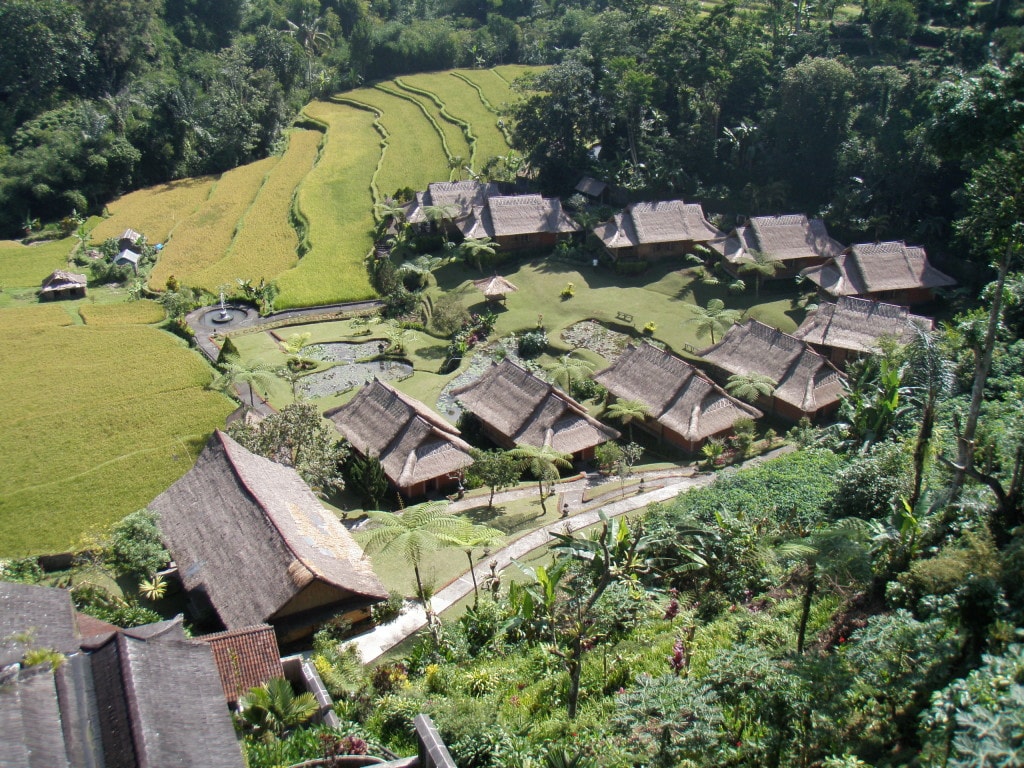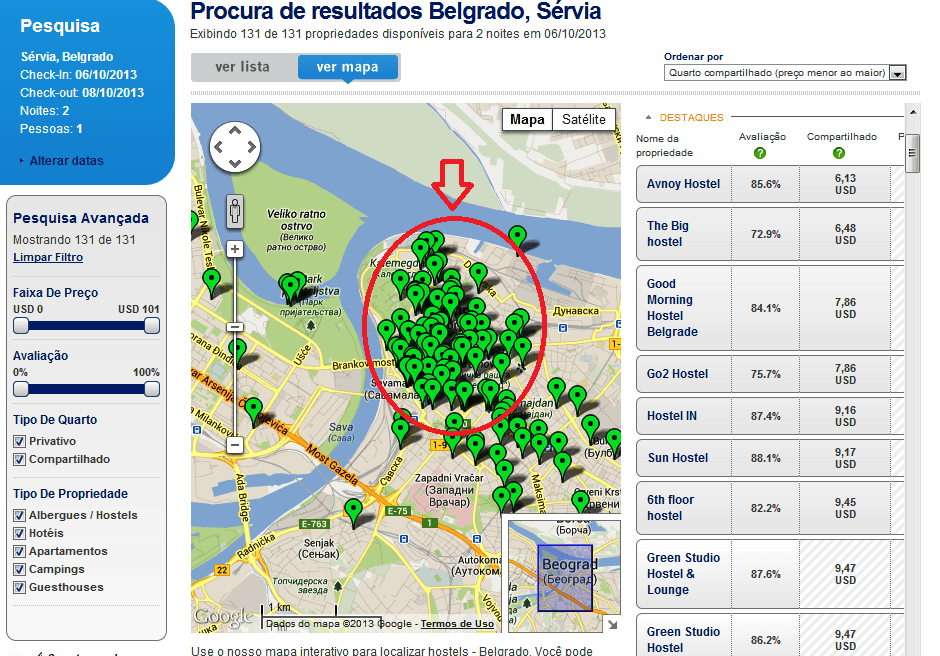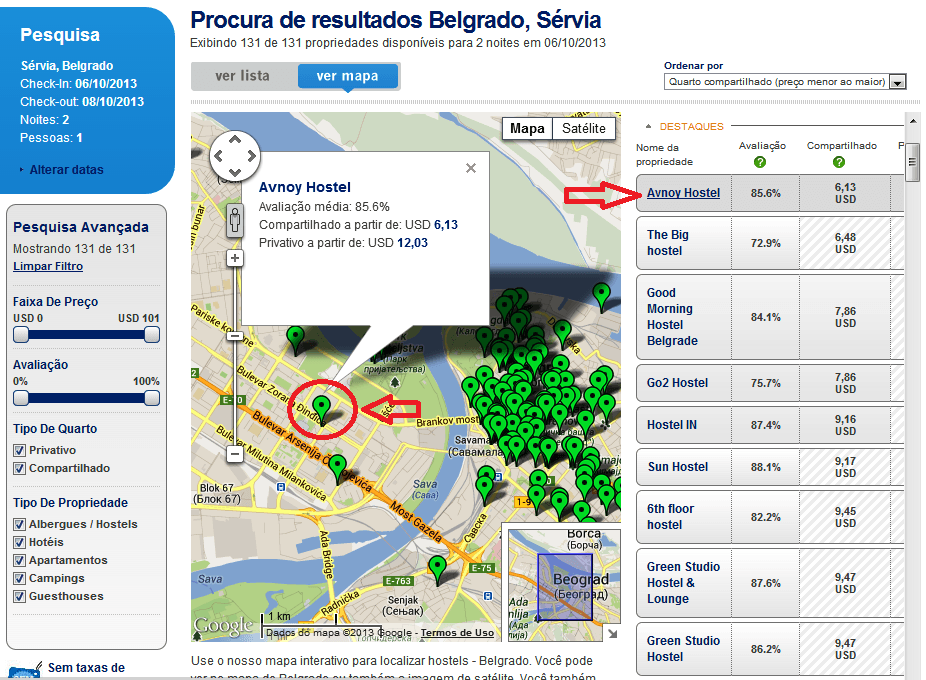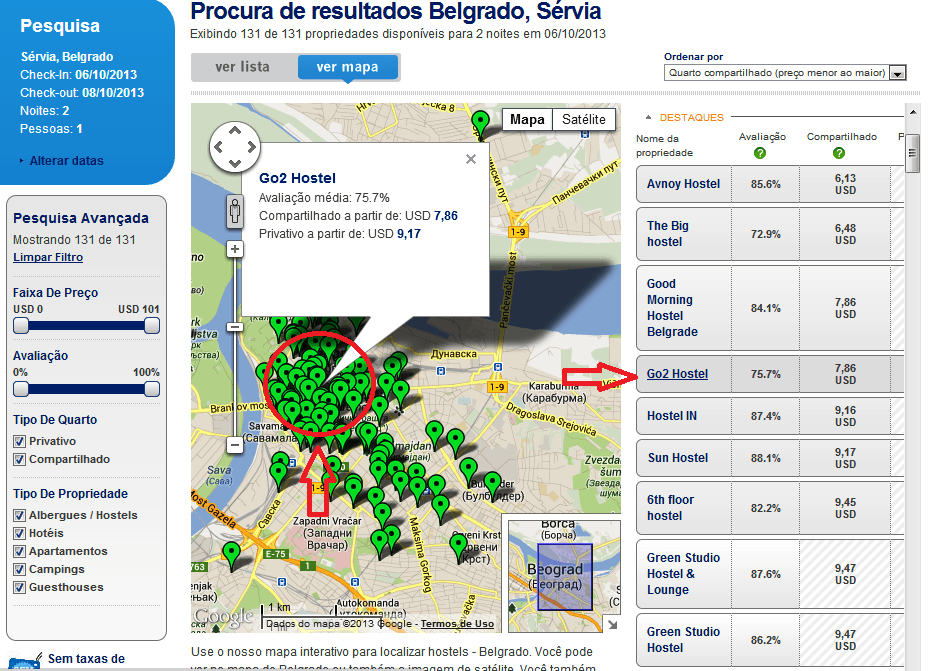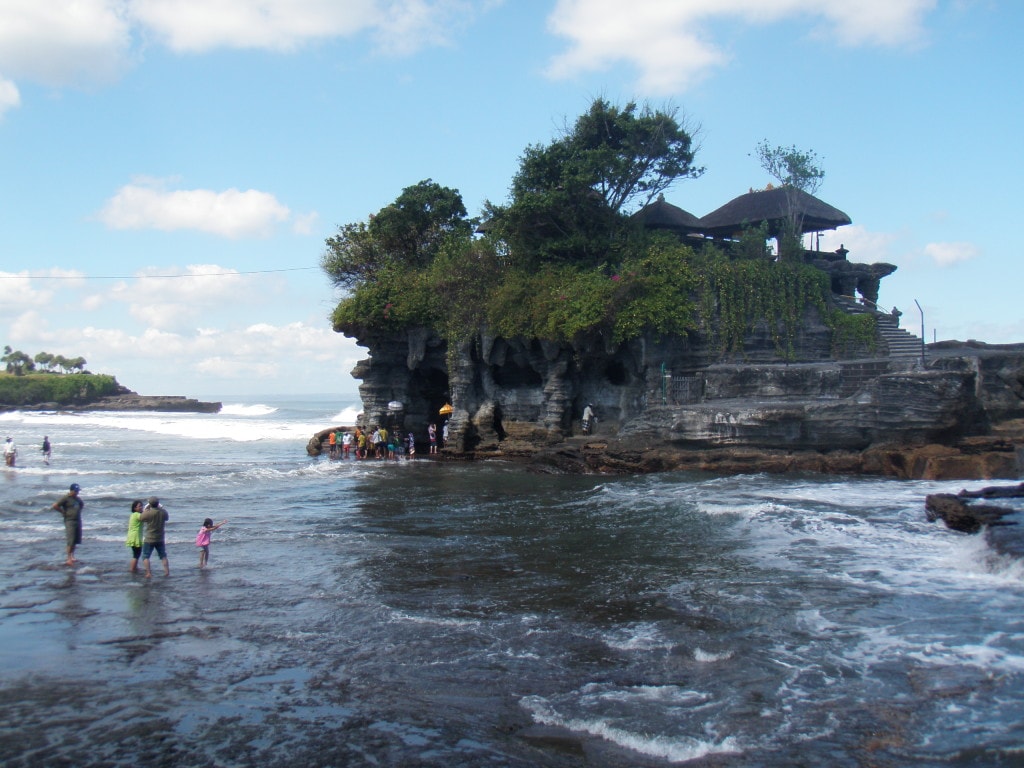The accommodation you choose can really have an effect on how much you like a particular city. I have certainly visited cities that had nothing special about them, but I still ended up with great memories of the city because I stayed in a really great place.
If you want an article about accommodation (hotel and hostel) summarized and quick to read, take a look here: 6 Best and Cheapest Sites to Find and Reserve Travel Accommodation
Plus, while some people might have no problem traveling alone, for others it’s just not the same to spend the day exploring a new place without having some company to share it with. As mentioned in a classic traveler’s movie, Into the Wild, “happiness is only real when shared.”
So, in order to meet other people as well as save money, I almost always use one of these two options for my accommodation: hostels or Couchsurfing.
To start, I’ll give some pros and cons for these two options and then comment on some alternatives at the end.
HOSTELS
I believe I’ve stayed in at least 300 hostels during my life for the simple fact that this is my preferred option.
For those of you who might not know what a hostel is, here’s a short explanation. Generally, when you book at a hostel, you will be booking a shared room in a dorm in which a number of other people (most commonly about 6-10, though it really can be any number) will be staying. Naturally, in that, you are booking a shared room instead of a private room (though many hostels also have private rooms… I’ll mention this below), the cost is significantly lower. There will either be a bathroom in the room that you will have to share with your roommates or a shared bathroom out in the hall. Depending on the hostel, you will have a choice between an all-male dorm room, an all-female dorm room, or a mixed dorm room. Usually, these places are mostly frequented by young people, which can make the place look like student accommodation.
Something else that probably sets hostels apart from other types you of accommodation that you may have stayed in is that hostels were essentially made for two reasons: for travelers to save money and for travelers to meet other travelers. Thanks to this second reason, you’ll often find things in hostels that you wouldn’t find in a hotel, like a shared kitchen and a common area for the guests to use and socialize.
Even knowing this, I’ve met many people (including my Brazilian friends) who seem to have a certain prejudice about hostels in thinking they are places for homeless people to spend the night.
Once, when I arrived at a hostel in Thailand I met a Finnish girl who was surprised that I was a Brazilian staying in a hostel. I asked her why and she told me that it was because she had met a lot of Brazilians during her travels that thought it was disgusting to stay in this type of accommodation.
This misconception really is a shame. If they had seen some of the great hostels I have stayed in around the world for a low price, they’d never want to stay in a hotel again. They just don’t know what they are missing!!
Still having second thoughts?? Well, check out some of the advantages of staying in hostels below:
ADVANTAGES
- Much much much lower price when compared to hotels;
- Chance to meet other travelers;
- Common areas (sometimes including a bar, TV, or even a pool) for you to socialize, party (TOO MUCH in some cases), or spend your time on a rainy day
- Organized social events (not all hostels do this, but I’ve stayed at ones where they’ve organized BBQs or movie nights)
- A fully-equipped kitchen to prepare your own food and thus save money
- Extra services for things like laundry (sometimes for free!!!) and bike rentals
- A reception that offers a wealth of tourist information ranging from free maps, discounted tours (after all, they know that you’re a backpacker), and ideas for what to see and do in their city
- Single or double private rooms that are (often) cheaper than private rooms in a hotel
- Unique personalities. Unlike big corporate hotels where the environment is the same no matter where in the world you go, many hostels will have truly unique atmospheres. So much so that they have become “famous” and people might want to go to a city specifically to stay in one of them. I’ll mention some of these below.
- I know it may be hard to believe, but I’ve definitely stayed in hostels that are cleaner, safer, offer more services/facilities, and are infinitely more pleasant than some hotels that I’ve stayed in for truly unbelievable prices. Unfortunately, this isn’t always the case… which leads us to our next heading:
DISADVANTAGES
- Although this will probably be your cheapest option for accommodation anywhere, in places like Norway or Switzerland it can still be really quite expensive
- A loss privacy if staying in a large dorm room with other people (although, like I mentioned above, if you’re willing to spend a bit more the hostel private rooms are normally cheaper than private rooms in a hotel)
- A lack of cleanliness. I know I said above that some hostels are really really clean but you’ll probably encounter some that are not. However, you can try to fix this by being aware of the following….
- You have to clean up after yourself if you make a mess. A very common sign to see in hostels around the world is one above the kitchen sink that says “please wash your dishes after you’ve used them… your mother isn’t here to wash them for you.”
- Loud roommates. The worst is when you have a loud snorer or your roommates come back to the room at 4:00 in the morning drunk and noisy while all you want to do is get a good night’s rest to wake up for your bus at 6:00 AM. In this case, I’d recommend some earplugs.
- You might not meet as many locals as you were hoping for. Although you will certainly meet travelers from around the world, it’s unlikely that you will find a lot of locals staying in a hostel. So, it might not be that “authentic” experience you are looking for…. But it’ll probably still be fun!
- Issues of security. Although I’ve never had a problem with this, I know people that have. Read more on my page about how to stay safe while traveling.
There are usually two types of hostels. There are those that are part of Hostelling International (HI) (https://www.hihostels.com/web/index.pt.htm) and then the so-called “independent” ones.
Hostelling International (HI) hostels have existed for many decades as they pioneered the system of hostels worldwide. However, I usually prefer independent hostel to HI hostels for a few reasons:
- You need to pay for an HI hostel membership card in order to receive discounts;
- Many HI hostels seem to have a lot of rules (which I’m not that big a fan of) like quiet hours or no partying;
- I’ve found they that HI hostels tend to be a bit more expensive than “independent” hostels.
On the other hand
- In small, relatively non-touristic cities where there aren’t “independent” hostels, you might find an HI hostel since they are such an old organization
- They are usually of very high quality (clean, professional, etc.) due to the HI standards they follow.
Which websites do I use to find, compare and book independent hostels?
To search for independent hostels I usually use two sites (and now a third one) each of which has specific features that I like:
I would say this is my favorite option. Besides almost always having the cheapest options and not charging commission, it also has a particular function that I like to use. I’ll describe what this function is a little bit farther down on the page when I discuss how to choose which hostel to stay in.

2. HOSTELWORLD
After I’ve checked on Hostelbookers, I’ll go to Hostelworld to compare prices. Normally, Hostelbookers is the cheapest, but this isn’t always true. Honestly, I do not have the slightest loyalty to either site and will always opt for whichever has the cheapest prices.
The benefit of Hostelworld is that, as far as I know, it is the largest site with the biggest number of hostels worldwide. So, if you are searching for hostels in a city on Hostelbookers but are finding few or no options, there is a big chance you’ll find more options at Hostelworld. Plus, the site has a certain feature that Hostelbookers doesn’t have, which I like to use to help me plan out my trips. Read about it in my article about how to plan your itinerary.
3. BOOKING.COM
Lately, to search for hostels and hotels I have also researched on Booking.com. This site is becoming one of the leading hotel reservations worldwide. It covers the whole world with great prices and no booking fees. One of its advantages is that in some hotels and hostels you can make a reservation without a credit card and can cancel a few days before at no cost, what the site calls “free cancellation”. This is very good if you are not already sure of your trip but would like to book the accommodation to not run the risk of running out of accommodation. As I said, the price is generally competitive, so I use it in my comparisons with Hostelbookers and Hostelworld. The only problem is that Booking.com is a more specialized site in hotels, then the availability of hostels is not as great as in Hostelbookers and Hostelworld. In conclusion, use the three to research and compare prices and, book with the best alternative.
TIP: Be a savvy traveler!! Once you’ve found the cheapest hostel on one of the sites above, a quick Google search will tell you if the hostel has a website of their own that you can book through. If the price is the same, it’s better that you book directly with the hostel instead of through one of these other websites so the hostel earns more. However, I frequently find prices for a hostel that is actually cheaper on Hostelbookers, Hostelworld and Booking.com than on the hostel’s own website. Don’t ask me why….
Once I’ve chosen the city I want to go to, how do I choose which hostel to stay in?
When I started traveling, the world of backpacking was much harder. The internet was still in its infancy and there was very little information on it.
I remember that I backpacked the U.S. using a pocket guide that listed few hostels by state, which ended up being a rather complicated process to actually stay at. You had to call to make a reservation or risk arriving without a reservation. Then, there was the challenge of trying to find the hostel without digital help (AKA Google maps) and, of course, without the help of a taxi (you can find out why I hate taxis so much and always try my hardest to avoid them on my page about local transportation).
Plus, without the internet, it was hard to know the quality of the hostel (as there were no reviews), if the price hadn’t changed, or if the address was in a good area of town.
Thankfully, the glorious internet has arrived to make our lives much easier and help us with this decision process. Here are some extra things that also might help you with your decision process:
- When the hostel is so good that it’s one of the attractions
There are many incredible hostels around the world that are a part of the journey itself. These are the hostels where I had more fun than in the city itself, and I ended up extending my visit because of the accommodation.
When choosing one of these hostels, it’s almost impossible for you to go wrong. If I go to a place and I know that there is one of these “classic” hostels that is worth staying at, this will probably be my choice (if my budget allows it, that is).
Unfortunately, as these are the most popular hostels, they are also the most expensive. Often, though, they are worth it. Plus, if you view the hostel as one of the city’s “attractions” (which it really is), then it seems to make more sense to pay for it. After all, chances are you paid to go and see attractions like the Roman Coliseum or Machu Picchu…. so why not pay to stay in an awesome “attraction” like one of these hostels?
From the top of my head, some good ones that are I remember staying at are The Kabul in Barcelona (https://www.kabul.es), Calypso Cairns in Australia (https://www.calypsobackpackers.com.au), and The Flying Pig in Amsterdam (https://www.flyingpig.nl).
To see some more of these “must-stay” hostels, check out the links below:
Hostel world;
- And if I have no idea which hostel I will choose, there are other factors used to decide on a hostel
If there aren’t any hostels like the ones described above (or the price of those ones deters you), the choosing process can take a bit more time. After all, it can be difficult to choose an ideal hostel in a place like Belgrade, Serbia, where there are 145 hostels to choose from!! If this is the case, I generally take the following things into account:
- Price: After all, when you’re backpacking, the idea is to do more with less;
- Location: No matter how cheap or cool the hostel is, I generally will not choose it if it’s difficult (or expensive) to get to with public transportation or if it’s in the middle of nowhere. However, if you do have some extra time in one place, sometimes it can be nice to stay in a hostel in a residential area away from the center just to see another side of the city;
- Other guests’ reviews: You’ll find these on all of the websites I mention above. Don’t just pay attention to how high they are, but also how many there are. I’d be wary of a hostel that only has a review or two… even if they’re good reviews;
- Environment: Do you want a place to party and meet people? Or do you want a place where you can relax and chill out? Read the hostel’s description/reviews to get a feel for the place;
- Amenities: Perhaps it’s important to you that this place has a kitchen that you can cook in, a bar, laundry facilities, or lockers;
- I evaluate all the factors above and decide which one is the best.
Here’s an example of how I would choose a hostel in Belgrade, Serbia using Hostelbookers:
- Once at the website’s homepage, I select country, city, date of arrival, and date of departure to see all the available hostels.
- Once I have the list of the available hostels, I go to the upper right corner and change the currency to USD. After all, I want to compare apples to apples and not apples with bananas.
- After this, I sort the hostels from the drop-down box to “dorm bed low to high.” This will make it so the hostels at the top are the cheapest and the ones at the bottom are the most expensive. There is also an option to select “private room low to high”… but I really only stay in a private room if I’m with my girlfriend. If I’m traveling with friends or alone, I’m not too picky about the number of beds in a room. The more people in the room, the more chances you have to meet other people. My record was a hostel in Bergen, Norway which had 60 beds!! It was an interesting experience… Just note that the prices, even for a private room, will be listed per person and not per room.
- Once I’ve done this, I use that resource from Hostelbookers that I mentioned I like. To the right of the box that lets you sort the prices, you’ll see a button that says “show map.” To see where a hostel is on the map (the list should still be from cheapest to most expensive), just put your mouse over the name of the hostel in the column to the right. Here’s an example:
Notice here that most hostels are concentrated in a certain region inside the circle. Even if I had never gone to Belgrade, I would conclude that this area would be the best for staying in the city as hostels tend to stay near the main tourist attractions or public transportation.
In this picture, I start to click hostel by hostel (starting with the cheapest and working my way down) to see where they are on the map. We can observe that the cheapest one “Avnoy Hostel” is rather far away (on the other side of the river, actually), from where the rest of the hostels seem to be. So, I decide to skip this hostel as the time and money that I will waste in getting to the city’s other attractions will make this not worth it.
As we keep working our way down the list, we see that the “Go2 Hostel” is in the area where most of the other hostels are concentrated, as shown below:
I would then check the reviews of the hostel. It’s at 75.7%, which is not awful (although I would recommend paying attention to hostels that are at less than 70%… depends on how much you can handle, I guess). I then confirm whether or not the rating for location is good. In this case, it’s 94.4%. Excellent! I then like to check the “environment” rating. This hostel is at 73.6%. Not great, but not bad. If you are totally geared to party, I would look for hostels with the highest evaluation of “environment” possible. If, on the other hand, you prefer something quiet, I would seek a hostel with a low “environment” rating.
Finally, I take a look at the reviews left by other travelers to make sure I won’t be getting any unpleasant surprises (like bed bugs), as well make sure it has all the amenities I want (WiFi, laundry, etc.).
How to get free accommodation via Couchsurfing
In the site’s own words: “Couchsurfing is a global community of 7 million people in more than 100,000 towns sharing their life, their world, their journey. Couchsurfing connects travelers with a global network of people willing to share in a deep and meaningful way, making the trip a truly social experience”
Couchsurfing is basically a social media platform where people around the world (the “hosts”) offer travelers (the “surfers”) space to sleep (whether it be a bed, a couch, or even an inflatable mattress) in their home.
However, the idea of Couchsurfing is not just to get a place to stay for free, it’s much more than that. It is a way to integrate people from different countries and cultures around the world to learn from each other.
Rather than just being a regular tourist and doing “touristy” things, as a “surfer” you will have the opportunity to do activities and to see the country through the eyes of a local (and this can be hard to do if you are staying in hostels, hotels, etc.)
The host will benefit too in that they will have the chance to meet someone with a different culture, customs, and stories, even if they are unable to travel themselves.
Imagine someone living in Russia who is fascinated by Brazil and has always wanted to visit it but is unable to do so because of their financial situation or work. By hosting a Brazilian in their home, they can find out more about this place they’ve always wanted to see by a person who was born there.
Sometimes, too, another goal of Couchsurfing is to “give something back” for the accommodation. For example, if I can play guitar, I might teach my host a few notes or perhaps cook a dish from my home country as another way of saying “thanks.”
If you have a city in mind that you’d like to “surf” in, start by making a free account on the website. With this free account, you will be able to make an appealing profile (meaning, make yourself seem like someone interesting and that hosts might like to meet by discussing your interests/goals and including a picture that doesn’t make you look like a serial killer) and then contact hosts. Once you’ve done this, find the “surf” button and type in the city you’d like to go to. Once you see a list of potential “hosts” in that city, you can browse their profiles. I normally send out several messages (in case one of them doesn’t work out) to hosts that seem unique or interesting and also have plenty of reviews. I think only selecting hosts that have reviews from travelers that have stayed with them in the past is very important from a safety standpoint. In order to get responses, it’s also important to show the host that you’ve actually read their profile and have selected them personally. For example, if you see someone that is a yoga fan and you are too, be sure to mention that. Or, if someone says they are looking to improve their Spanish and you happen to speak Spanish, offer to help. If someone sends you back a message saying that they can host you, you’ll normally exchange a few more messages to discuss logistics (how you’ll be arriving, if they can pick you up, etc.) before you come.
As with any form of accommodation, there are both advantages and disadvantages to Couchsurfing.
ADVANTAGES
- Provides a chance to meet locals, hear their stories, and see how they live in a truly unique way
- Provides the opportunity to do activities that are not on the itinerary of an average tourist
- Gain an understanding of a new culture and customs which allows you to get out of your comfort zone
- Offers the opportunity to teach something to someone who helped you
- Offers many events that you can participate in even if you don’t “host” or “surf”… possibly even in the city where you live!! Just go to the Couchsurfing website, type in the name of the city that you are in, and click “events.” Once, on a Friday night I was alone in Helsinki, Finland and, not knowing anyone but wanting something to do, decided to consult https://www.couchsurfing.org/. By chance, there happened to be a “meetup” that evening which I went to and met a lot of great people (both from Finland and around the world)!!
DISADVANTAGES
- Have to be prepared for some discomfort and miss communication… after all, you will be sleeping in a stranger’s house and therefore have to respect their rules.
- There will be a loss of privacy/your own schedule. Usually, depending on the “hosts” schedule, you will spend much of your time in a city with the host. So, if you like to be alone or follow your own itinerary for a city, Couchsurfing is not for you. Plus, sometimes it can be a bit frustrating to have to follow your host’s schedule …. for example, they might work from 7 AM – 4 PM and request that you are out of their apartment when they’re gone.
- The comfort/cleanliness of the place you’re staying can vary widely
- Although many members of the Couchsurfing community have references or reviews from other members, if you go to someone’s house who doesn’t have many reviews, you may have unpleasant surprises. I’ve heard stories of people who were robbed or women who might have encountered male hosts that were slightly too forward. However, most of the people that I’ve talked to have had great experiences. So, like I mentioned above, I would avoid staying with someone who has either bad reviews or very few reviews. And, most likely, you’ll have a great experience too!!
HOTELS
In general, I try to avoid hotels unless I’m opting for a romantic weekend away. I do this not only because of their cost but because, at least in my humble opinion, the people you meet while traveling are ultimately just as valuable (if not more valuable) than all of the places you visit and sights you see. So, if you are staying in a hostel solo, it can be difficult to have these sort of experiences.
However, sometimes staying in a hotel is the best option. For example, if you are traveling with a few other people, sometimes splitting the cost of a hotel room can be cheaper than opting for a hostel (although, as I mentioned before, it’s pretty cool to be with your friends in a hostel so you get to meet other people from outside your circle). Or, in developing places like South America or Africa, a “local” hotel might actually be cheaper than the “foreigner” hostels. I remember once when my girlfriend and I were in a small town in Colombia, we found a hotel room for $8.00 USD for the night … meaning, each one of us only spent $4.00 USD for that night to stay in a private room. As the average cost to stay in a hostel dorm room (per person) around Colombia was roughly $8 USD per night, we thought this was a pretty good deal.
And, although I realize that I am contradicting myself a bit by saying this, sometimes staying in hotels like this offer a more “cultural” experience than staying in a hostel would. The key here is to aim for those cheap hotels that generally cater towards the local population instead of the foreigners. In this way, you can get a glimpse of what real life might be like here and, to a certain extent, “live (or travel) like a local.”
And, of course, there are some situations in which you travel to a place that might not have either abundant hostels or Couchsurfing hosts… meaning that hotels are your only option.
One such place is the United States. Although there are many hostels in most touristic cities, the US is a huge country that seems to have been built to be traveled mostly by car and plane (meaning, public buses, and trains between cities aren’t nearly as far reaching as they are in Europe, for example).
So, as a “road trip” seems to be the best way to traverse the US, chances are high that a traveler will end up staying in smaller cities (or even fairly large cities) that don’t have hostels. In this case, hotels are the best option. They are also the best option if, perhaps, you are traveling with your family, friends (so you can split the cost of a hotel room), or perhaps just want to stay somewhere a bit quieter than a hostel full of young people wanting to socialize.
How do I choose and book the hotel where I’m staying??
If I’m looking for a hotel outside the U.S. or Canada I usually use Booking.com, which I already mentioned above. It is a huge site with lots of hotels worldwide. And as for hostels, with Booking.com you can book some hotels without a credit card and only pay when you check-in. Booking.com also lets you cancel the reservation a few days before, without charge, if your travel plans change.
BOOKING.COM: https://www.booking.com/
However, to try to find hotels with discounted prices, especially in U.S. and Canada, I also always use an excellent feature that I mentioned on my page and how to save on transportation and save money on airline tickets: the website Priceline.
PRICELINE: https://www.priceline.com/

Although these two sites will not help you in looking for those “cheap, local” hotels I talk about above found in developing areas, they will help you in places where these might not exist, like in USA, or if you are looking for a deal on staying in a decent place (and, let me tell you, I’ve found some really killer deals!!).
It’s the same system for the car and flight tickets, but this time for hotels. The difference is that you can use it for hotels in almost any city in the world!! Works as follows:
- Go to the Priceline website and type in the name of the city you’d like to visit as well as the dates you’ll be there. For this example, I’ll search for a hotel in Miami, Florida.
- As you can see in the image below, the lowest result was for US$ 69 per night. However, I don’t really want to pay $69 and would really prefer something right around $49.
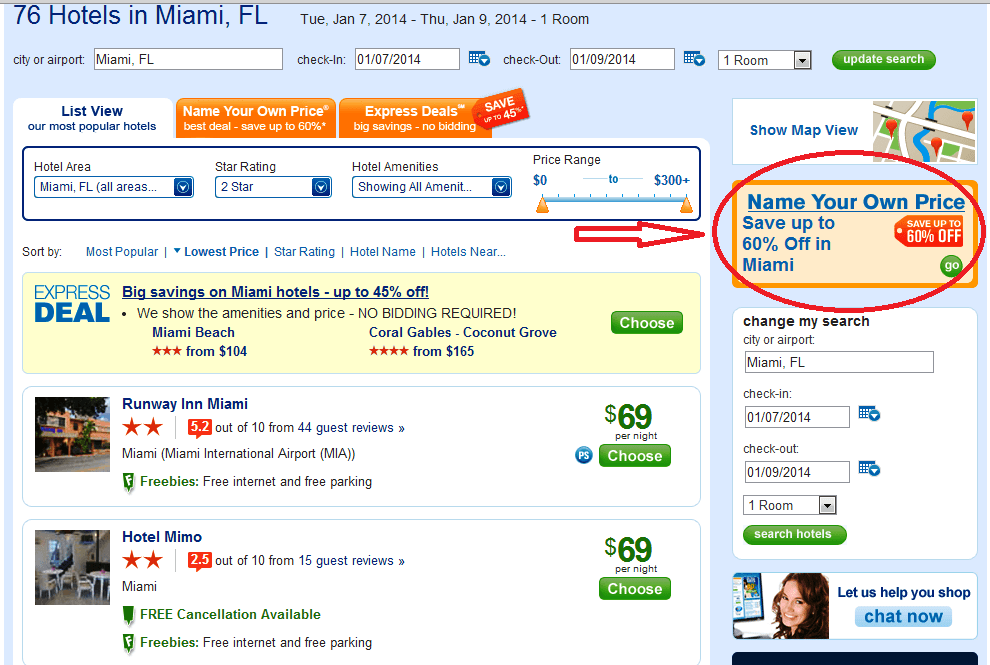 3. Click the orange “Name Your Own Price” button near the top of the page as seen in the image above. Once you’ve done this, you’ll have the option to select which regions of Miami you want to stay in (as Miami is quite large) as well your minimum star requirement. By doing this, you will not run the risk of, instead of staying in a 3 star or higher hotel in Miami Beach like you wanted to, end up in a 1 star shithole in the middle of downtown Miami. Once you’ve chosen these options, you’ll be able to type in the amount you’d be willing to pay per night per room. So, here I can put in that $49 that I wanted. Check it out below:
3. Click the orange “Name Your Own Price” button near the top of the page as seen in the image above. Once you’ve done this, you’ll have the option to select which regions of Miami you want to stay in (as Miami is quite large) as well your minimum star requirement. By doing this, you will not run the risk of, instead of staying in a 3 star or higher hotel in Miami Beach like you wanted to, end up in a 1 star shithole in the middle of downtown Miami. Once you’ve chosen these options, you’ll be able to type in the amount you’d be willing to pay per night per room. So, here I can put in that $49 that I wanted. Check it out below:
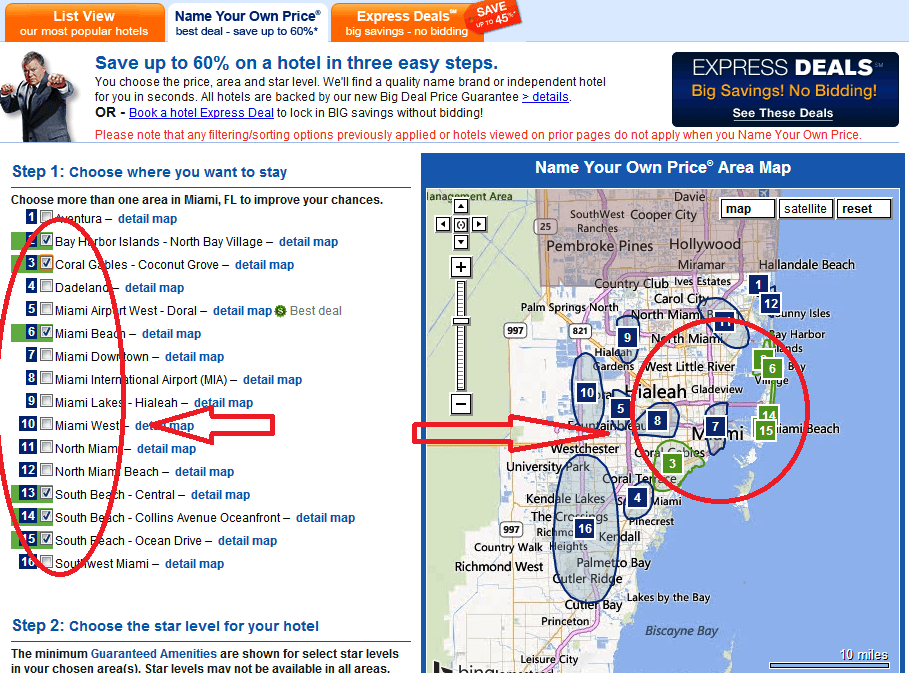
Defining the stars and how much you want to pay.
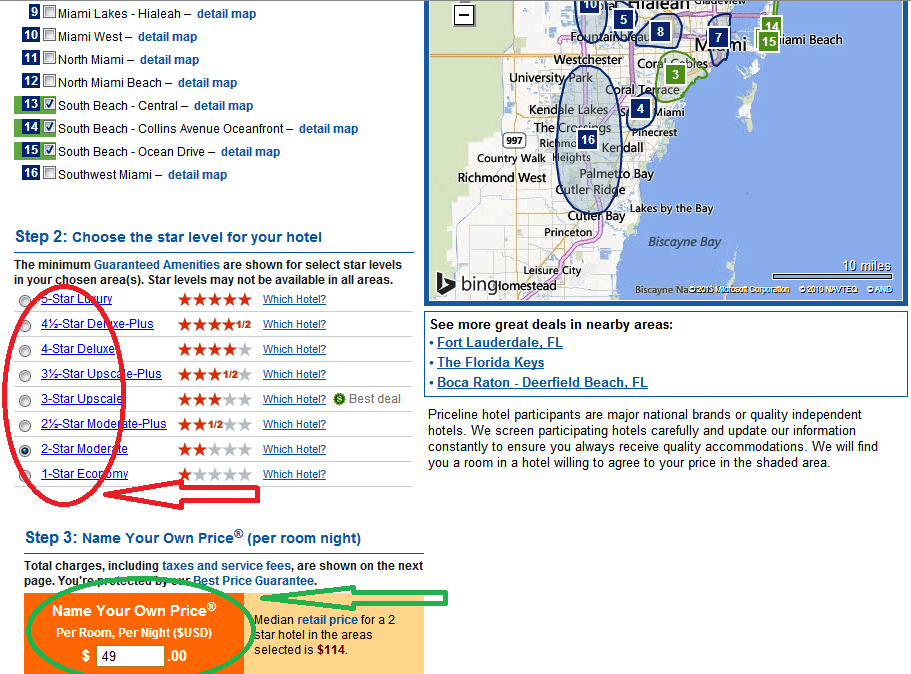 4. Once you’ve clicked “preview offer,” you’ll see a hotel that meets your offer including a list of its guaranteed amenities (gym, pool, etc.) and its average guest rating. However, you will be given neither the name of the hotel nor its exact location… you’ll just be guaranteed that it’s in the region and star category you chose.
4. Once you’ve clicked “preview offer,” you’ll see a hotel that meets your offer including a list of its guaranteed amenities (gym, pool, etc.) and its average guest rating. However, you will be given neither the name of the hotel nor its exact location… you’ll just be guaranteed that it’s in the region and star category you chose.
5. On the next page, before the site can “test your offer,” you’ll have to put in your credit card information. This is because, if things go well, your offer of $49 will be accepted and instantly charged to your card. Please note that, once your offer has been accepted, you’ll be unable to cancel your reservation or receive that money back. You will then be able to see the specific details of the hotel, including its name and address. However, if your offer is rejected because it is too low, your offer will be refused and you’ll have to wait 24 hours before trying again with a slightly higher price or in a cheaper region.
While some people might not like the element of surprise with Priceline, I’ve always found myself to be pleasantly surprised. After all, by choosing your minimum star value, there is always a chance that you could end up with one of a much higher value. I once stayed in a hotel in Tampa, Florida where, through Priceline, I only paid $43 instead of the $70 that was listed on other sites. So, if you’re not super concerned about the specifics of a hotel and would like to save money, Priceline is definitely for you. Be sure to check out other ways that you can use Priceline in my pages about how to save on transportation and how to save on flights.
AIRBNB: https://www.airbnb.com/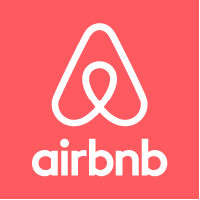
The latest world sensation on accommodation for travelers is Airbnb, which allows you to rent a room, full apartment, or even a full house from a local resident in the area….something like a paid version of Couchsurfing.
It’s a great tool to find cool and exclusive accommodation around the world. It can also save you a lot of money in touristic destinations where regular hotels or hostels are too few or expensive.
It also has another great asset that makes it unique. On Airbnb, you will find yourself hosted by a local and, depending on the relationship you build, he or she can take you for a tour around the area or take you out to meet personal friends and family. As it is a much more inclusive and authentic way of traveling that can lead to long-lasting friendships, it can give you a deeper look into the real life of the place you’re visiting.
It’s very easy to use and it works like any other hotel booking site. You just have to search for the city or area you are looking to sleep in, find the options available (you can even put the price range you want), connect with the host, confirm the travel dates, and pay.
You can also make money with Airbnb!! If you have an apartment, room, van, or even a tent that you would like to rent for someone to sleep in, you can post it on Airbnb and start monetizing your own accommodation!
And the best of all, if you sign-up for the service using the link here, you’ll get US$ 25 off your first stay!
Well, that’s it for now. Do you have any other good tips for finding the best accommodation during your travels?? Give your testimony in the comments area below or email me if you still have any questions.
Plus, keep your eye out for my blog post about whether or not to book your accommodation in advance.
Happy travels!!

